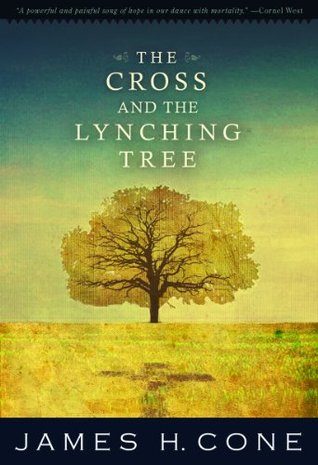More on this book
Community
Kindle Notes & Highlights
In the “lynching era,” between 1880 to 1940, white Christians lynched nearly five thousand black men and women in a manner with obvious echoes of the Roman crucifixion of Jesus. Yet these “Christians” did not see the irony or contradiction in their actions.
the bulk of the white . . . Christian majority in this country has exhibited a really staggering level of irresponsibility and immoral washing of the hands, you know. . . . I don’t suppose that . . . all the white people in Birmingham are monstrous people. But they’re mainly silent people, you know. And that is a crime in itself.”
“When I was a rabbi of the Jewish community in Berlin under the Hitler regime . . . the most important thing I learned under those tragic circumstances was that bigotry and hatred are not the most urgent problems. The most urgent and most disgraceful, the most shameful, the most tragic problem is silence.”
What most whites call “integration” (or in the language of today, diversity) is often merely “tokenism.” There is very little justice in any educational institution where black presence is less than 20 percent of the faculty, students, and board members. There is no justice without power; and there is no power with one, two, or three tokens.
In The Souls of Black Folk and other essays, Du Bois condemned “white religion” as an “utter failure.” “A nation’s religion is its life, and as such white Christianity is a miserable failure.” He could not reconcile white Christianity with the Gospels’ portrayal of Jesus. For Du Bois, true Christianity was defined by “the life and teaching of Jesus of Nazareth and the Golden Rule.” The white church’s treatment of blacks was “sadly at variance with this doctrine.”
“It is exceedingly doubtful if lynching could possibly exist under any other religion than Christianity,” he wrote. “Not only through tacit approval and acquiescence has the Christian Church indirectly given its approval to lynch-law . . . , but the evangelical Christian denominations have done much towards creation of the particular fanaticism which finds its outlet in lynching.”
If American conscience were only half alive, if the American church and clergy were only half christianized, if American moral sensibility were not hardened by persistent infliction of outrage and crime against colored people, a scream of horror, shame and indignation would rise to Heaven wherever your pamphlet shall be read.
“By some amazing but vastly creative spiritual insight,” theologian Howard Thurman said, “the slave undertook the redemption of the religion that the master had profaned in his midst.”
God saw what whites did to innocent and helpless blacks and claimed their suffering as God’s own. God transformed lynched black bodies into the recrucified body of Christ. Every time a white mob lynched a black person, they lynched Jesus. The lynching tree is the cross in America. When American Christians realize that they can meet Jesus only in the crucified bodies in our midst, they will encounter the real scandal of the cross.
One must suppose that in order to feel comfortable in the Christian faith, whites needed theologians to interpret the gospel in a way that would not require them to acknowledge white supremacy as America’s great sin.


